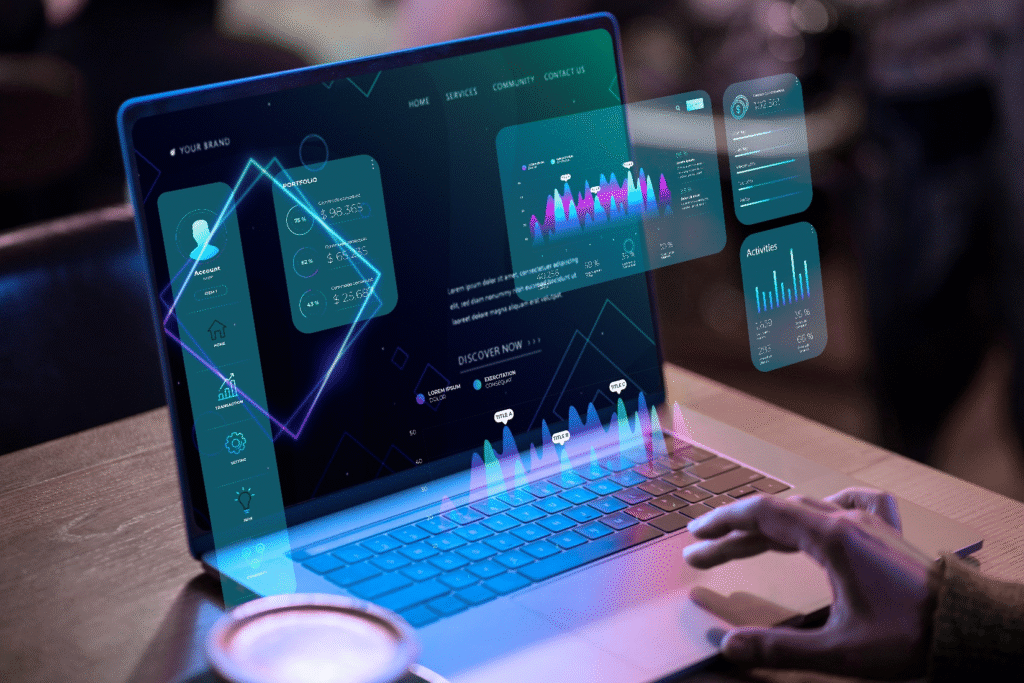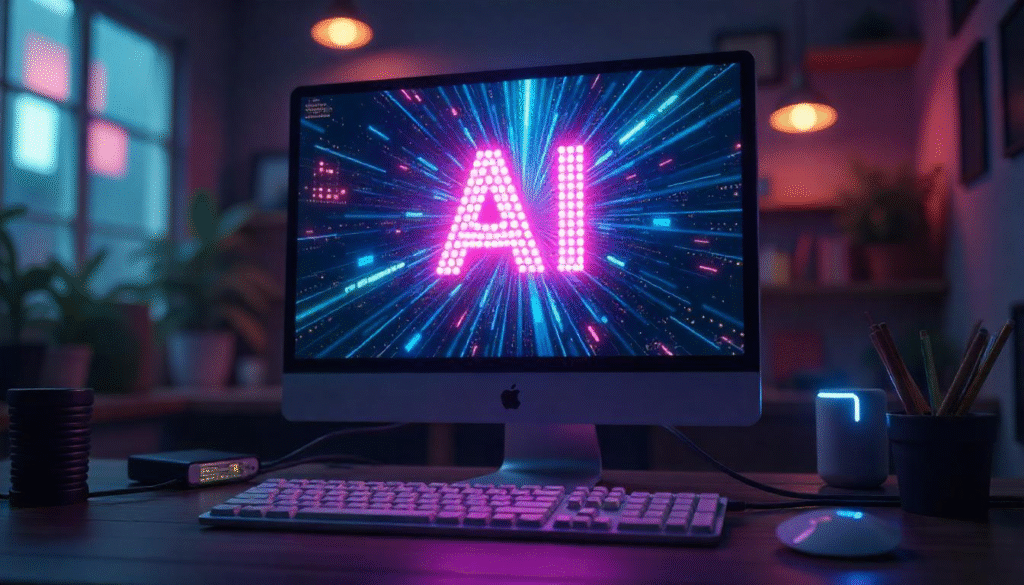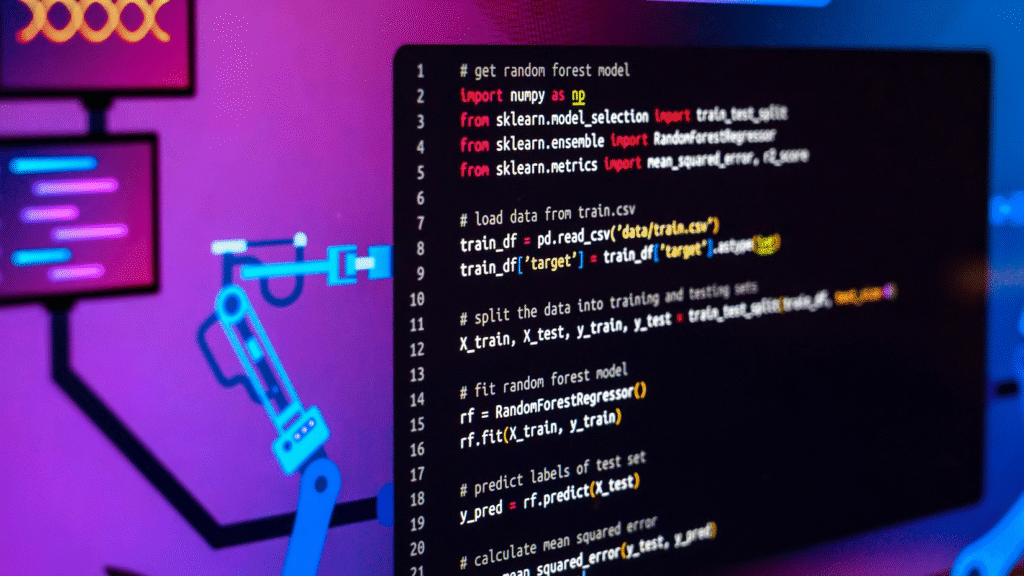
Artificial intelligence has transformed the digital world, and nowhere is this more visible than in the evolution of the AI website. From simple chatbot integrations to complete automation of customer experiences, AI web development is rapidly shaping the future of online presence. In this comprehensive guide, we will explain how an AI website works, what makes it essential today, and how it is changing web development across every industry.
Introduction to AI Website Technology
To begin with, an AI website uses artificial intelligence to provide dynamic, responsive, and intelligent interactions with users. Unlike traditional websites, which rely on static content and manual updates, AI-powered sites adapt to user behavior in real-time. Consequently, businesses can enhance customer experience, improve engagement, and increase efficiency all at once.
Moreover, the integration of AI web tools into websites is no longer optional; it is becoming a competitive necessity. Whether through machine learning algorithms, natural language processing, or predictive analytics, an AI website is built to understand, learn, and evolve with every interaction.
The Role of Chatbots in AI Web Development
One of the most common starting points for AI web development is the chatbot. These virtual assistants interact with users through text or voice, answering queries, offering support, or even closing sales.
Because chatbots are powered by artificial intelligence, they learn from every conversation. Therefore, the more they interact, the smarter they become. This continuous learning leads to better user satisfaction and higher conversion rates over time.
For example, many useful AI websites now deploy chatbots that can handle complex customer service scenarios. As a result, support teams can focus on more nuanced issues while the AI handles routine questions.

Moving Beyond Chatbots in AI Website: Personalization and Content Generation
After integrating chatbots, the next logical step in building an AI website involves personalization. Through behavior tracking and data analysis, AI systems tailor the content and layout of a website to suit each individual visitor.
Instead of showing the same homepage to everyone, an AI website can display personalized recommendations, relevant blog posts, or custom calls-to-action. In doing so, it significantly increases user engagement and satisfaction.
In addition, some AI web platforms can generate content on demand. For instance, automated blog writing tools or product description generators can reduce the workload for content teams. Thus, businesses save time while maintaining a consistent publishing schedule.
Automating User Journeys in AI Websites for Greater Efficiency
Once personalization is in place, the next stage involves automating entire user journeys. This level of automation can include onboarding processes, form submissions, lead nurturing, and follow-up emails—all without any manual input.
With artificial intelligence working behind the scenes, websites become fully interactive digital assistants. From the first visit to post-sale support, users receive timely, relevant, and personalized interactions every step of the way.
Due to this level of automation, companies gain the ability to scale their services without increasing staff or operating costs. In fact, some businesses manage thousands of customer interactions daily, thanks to AI website automation.
Integrating AI in E-Commerce Websites
E-commerce is one of the most significant beneficiaries of AI web technology. Online stores that adopt artificial intelligence tools often see improvements in search functionality, product recommendations, pricing strategies, and customer support.
By analyzing user behavior, AI systems can predict what products customers are likely to purchase next. Consequently, AI websites boost cross-selling and upselling opportunities effortlessly.
Additionally, dynamic pricing algorithms adjust prices based on demand, competition, and user data. This real-time pricing strategy ensures maximum profitability while maintaining customer satisfaction.
Furthermore, voice search and visual search capabilities are becoming more common on e-commerce sites. As a result, shoppers can find products faster and more intuitively than ever before.
Useful AI Websites and Tools to Know
While understanding the concept is important, it’s also helpful to explore some useful AI websites that showcase real-world applications. Tools like Copy.ai, Jasper, and ChatGPT assist with content generation, while platforms like Tidio and Drift handle AI chat functionality.
In terms of analytics and customer insights, platforms such as Hotjar, Pendo, or Amplitude now include AI-powered recommendations and user behavior predictions.
For developers, tools like Builder.ai simplify the process of creating an AI website from scratch without extensive coding. As these platforms continue to evolve, they will further democratize access to advanced AI web development capabilities.
The Impact of Artificial Intelligence on Web Design
Beyond functionality, AI is revolutionizing web design as well. Through AI design assistants, websites can now be built automatically based on brand guidelines and user preferences.
Instead of starting from a blank canvas, designers receive smart suggestions for layout, color schemes, and even typography. Therefore, the entire design process becomes faster, more intuitive, and user-focused.
Furthermore, A/B testing and conversion optimization are also being automated. Artificial intelligence can detect which version of a page performs better and implement changes without human involvement. Thus, AI websites evolve continuously to achieve optimal performance.

Common Challenges in AI Web Development
Although the benefits are numerous, AI web development does come with certain challenges. Data privacy, ethical AI usage, and system transparency are crucial issues that developers must address.
Additionally, training AI models requires high-quality data. Without it, the systems may produce inaccurate or biased results. That being said, as tools and frameworks improve, these challenges are becoming easier to manage.
Nevertheless, developers and businesses should always prioritize user trust, especially when deploying AI tools that collect or analyze personal information.
The Future of AI Websites: What’s Next?
Looking ahead, the capabilities of AI websites will continue to expand. Soon, we may see AI tools that design entire marketing campaigns, manage inventory in real time, or conduct sales outreach with near-human intelligence.
Moreover, as AI continues to integrate with emerging technologies such as augmented reality (AR) and the Internet of Things (IoT), AI websites will become central hubs for immersive digital experiences.
Ultimately, every industry—from healthcare to education to finance—will benefit from the seamless, automated capabilities that AI brings to the web.
DanLogics – Custom Software Development Solutions Tailored to Your Business
At DanLogics, we specialize in building scalable, secure, and innovative custom software solutions that align perfectly with your unique business goals. From enterprise-grade applications to intelligent automation systems, our team delivers end-to-end development services designed to drive growth and efficiency.
Conclusion: Embracing AI for a Smarter Web
In conclusion, the AI website is more than just a trend; it is a fundamental shift in how we design, interact with, and manage online platforms. From chatbots to full automation, artificial intelligence is transforming the digital landscape at an unprecedented pace.
By adopting AI web development strategies today, businesses not only improve their current operations but also future-proof their digital presence. With a growing number of useful AI websites and platforms now available, there has never been a better time to explore what AI can do for your website.
Whether you are just starting out or looking to take your existing site to the next level, integrating AI features is the smartest move you can make.


